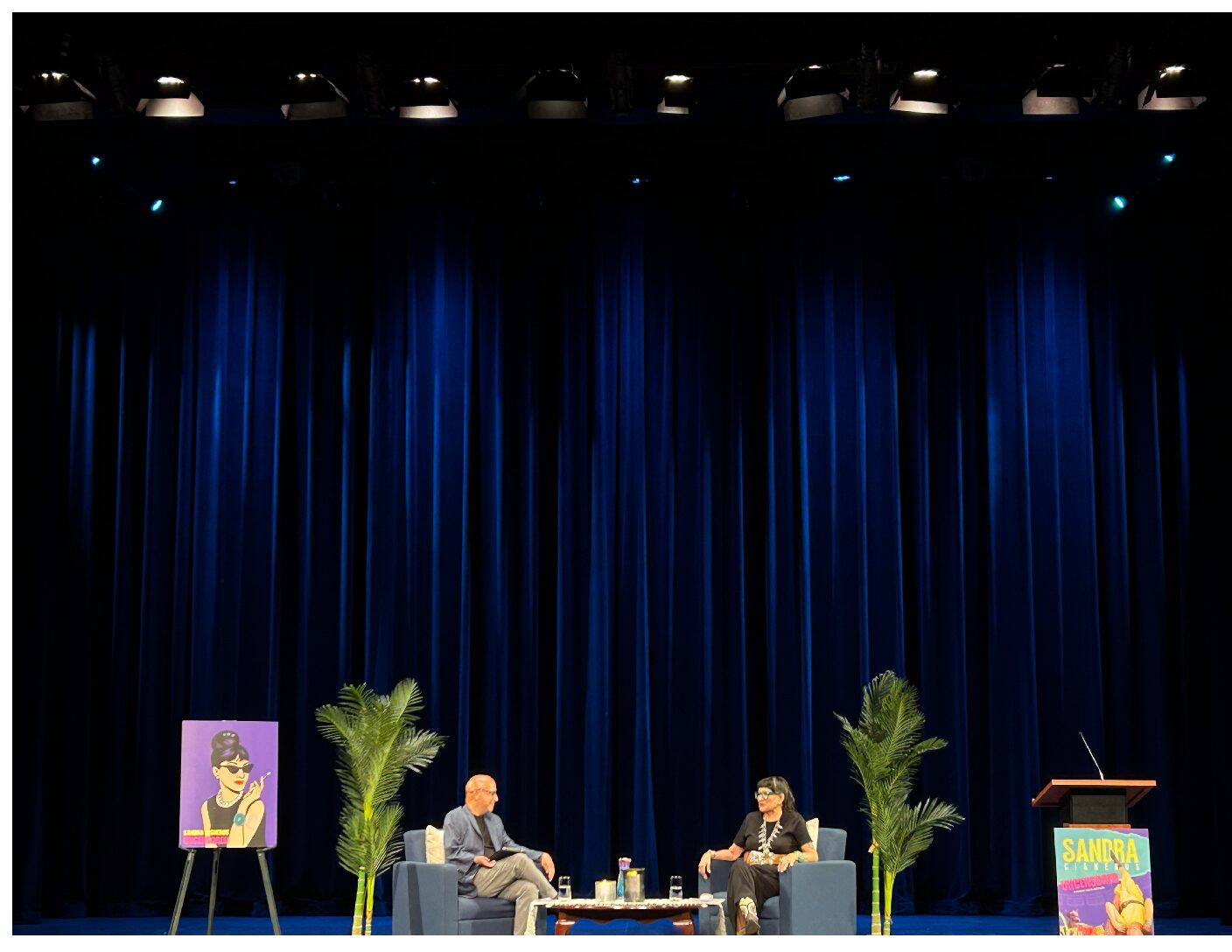“The House on Mango Street” is required reading in hundreds of schools across the United States. The book tells the story of Esperanza Cordero, a young Chicana girl navigating life in Chicago, and marked a breakout moment for author Sandra Cisneros. On Wednesday, Oct. 8, Cisneros visited University of California, Riverside (UCR) for the Palabras y Poder event, held at the University Theater.
Cisneros opened the event with a reading from her novel-in-progress, “Infinito.” The novel centers on a gay, male protagonist who is in love with a man who, in turn, loves a woman. Cisneros shared that both her and the character shared a set of “gifts” that she hopes to explore through her character. The excerpt, titled “How to Create an Altar,” explores themes of love and connection.
Looking back on her beginnings, she reflected on her journey to becoming a writer. “I saw in my mind’s eye a book with my name clearly on its spine,” crediting a trip to the library of her hometown as the first time she imagined herself as a writer.
Cineros then commented on how she saw her beloved neighborhood fall into despair due to what she deemed “city’s neglect.” All the people and small businesses she had known to enjoy had been driven out. This neighborhood was the one she wrote about in “The House on Mango Street.”
Unlike a traditional novel, “The House on Mango Street” is a collection of vignettes. Cisneros described writing the story as collecting words and sorting them out later. She grabs inspirations from different eras and people in her life. She also talked about the struggle of balancing the two countries she calls home, something many Chicanos can relate to:“Which parent country do I claim as mine when I travel? Which parent country will accept me as authentic when I return?”
Reflecting on “The House on Mango Street,” Cisneros said she was struck by “how relevant the stories are for what is happening in the world today.” She spoke further about the struggles faced by people of color in today’s society, documented and undocumented.
Cisneros emphasized the importance of writers, especially in today’s world: “Who will tell the story … when citizens are afraid to criticize their government for fear they will be jailed or deported?” She went on to address a range of issues, including people with disabilities, women’s rights and sexuality. She also touched on climate change, greed, corruption and other societal challenges.
Following her speech, Cisneros participated in a question and answer session, answering questions from both the audience and moderator Alex Espinoza, a creative writing professor at UCR. When asked about her life path, she reminisces about the people she has met and people who have spoken to her about the profound impact she has had on their life. Cisneros was also asked about the future she envisions for the literary world. In response, she shared her belief that “Chicano writing is looked at as the illegal letters” and emphasized that moving forward “we need to be extraordinary.”
She joked that the question and answer session felt like a talk show and asked whether she should start one, prompting loud applause and cheers from the audience. She also made light of her book being banned, and recently unbanned.
The evening concluded with a book signing, as fans lined up for over an hour to meet Cisneros and get her autograph. It was a memorable end to a night that blended humor, insight and the enduring power of her words.



